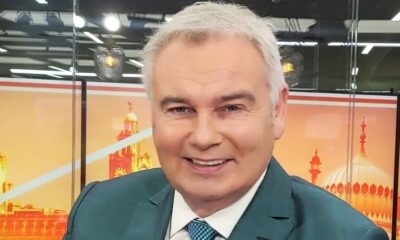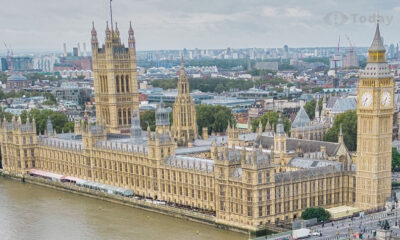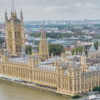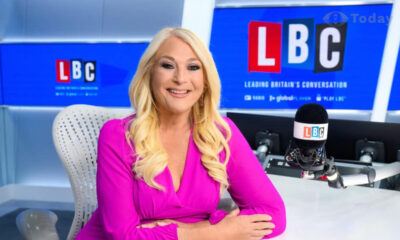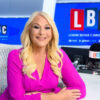Viewers and listeners have their say on politicians presenting TV and radio programmes…
Broadcasting regulator Ofcom research has underlined the significant value viewers and listeners place on due impartiality in findings released today. The organisation also notes they have ‘put broadcasters on notice’ that they must ‘maintain the highest editorial standards ahead of a General Election.’
Cristina Nicolotti Squires, Ofcom’s Broadcasting and Media Group Director:
“Viewers and listeners are at the heart of everything we do. That’s why it was so important to give audiences from all walks of life, geographies and political persuasions the opportunity to have their in-depth say on the hotly debated issue of politicians presenting programmes.”
The qualitative research explores audiences’ understanding of news and current affairs content and their expectations of due impartiality when politicians are presenting. Ofcom commissioned the study in light of the rise in the number of programmes presented by politicians – notably on Talk Radio/TV and GB News.
The research by the regulator involved 29 focus groups with 157 participants from a range of backgrounds, reflecting different political leanings and media consumption habits from all across the UK. The report captures a wide range of views but, overall, the audience feedback supports the broad design of existing due impartiality rules under the Broadcasting Code.
The findings note that viewers and listeners strongly value due impartiality as an important requirement, especially for news programmes. People feel that news should be held to the highest standards of impartiality, and welcome the stricter requirements which already apply to it under the Code. Will this see all news now covered equally, having recently seemingly decided a two-tier level of regulation was needed – with BBC and ITV expected to keep this high standard – while Talk TV and GB News, especially the latter, repeatedly allowed to broadcast output that would be unacceptable on mainstream media?
Ofcom notes also that audiences recognise the different editorial elements which can determine whether the content is news or current affairs but find it challenging to classify content as one or the other in practice, particularly if a programme contains both.
Participants typically associate news content with shorter, breaking, factual and live reporting, often cutting to a reporter on the ground. Current affairs content is perceived to be a longer-form, opinion-led discussion, which may include questions from guests or audiences. While audiences accept that a programme can contain a mix of news and current affairs, they feel a programme’s visual presentation and the fact that similar topics are covered can sometimes mean the distinction becomes blurred. They feel more can be done by broadcasters to address this confusion
Cristina Nicolotti Squires, Ofcom’s Broadcasting and Media Group Director:
“While viewers and listeners expressed a range of opinions, the feedback overall fundamentally supports the robust broadcasting rules we already have in place. People are clear that, they expect broadcasters to maintain the highest standards of due impartiality. It follows that, given politicians’ partial viewpoint, audiences don’t want to see or listen to politicians presenting news – full stop. But while many are instinctively uncomfortable with politicians presenting current affairs, there was no clear consensus for an outright ban.”
People expressed a range of views about politicians presenting current affairs programmes, but although there were concerns, there’s no clear consensus for an outright ban.
Opinions on this issue are mixed; some groups were uncomfortable with it, some were less concerned, while others were supportive. Audiences also recognise this editorial format offers both advantages and disadvantages. For example, there are concerns that politicians could promote an agenda or mislead audiences who might not recognise them as politicians.
On the other hand, people consider this practice provide a platform for greater accountability to the public. Participants also balanced concerns about a potential lack of due impartiality against the importance of freedom of expression.
Finally the findings suggest that audiences expect broadcasters who use politicians as presenters to take extra care to preserve due impartiality and suggest mitigations which could help alleviate concerns. These include telling audiences when a politician is presenting and the party they belong to, making the distinction between news and current affairs content clearer, and ensuring politicians present alternative points of view robustly and respectfully.
Separately – and following a series of decisions about GB News programmes presented by politicians found in breach of Rules 5.1 and 5.3 of the Code – several important learnings for broadcasters have been hardwired into strengthened industry guidance, also published today.
Although these decisions and updated guidance did not take account of the audience research findings, they speak to a number of common themes. The guidance reinforces the prohibition on politicians presenting news. It reminds broadcasters that, because politicians have an inherently partial role in society, news content presented by them is likely to be viewed by audiences in light of that perceived bias, which would risk undermining the integrity and credibility of broadcast news.
Cristina Nicolotti Squires, Ofcom’s Broadcasting and Media Group Director:
“There are a number of important lessons here for broadcasters. We expect them to pay close attention to what their viewers and listeners are telling them through the research, our published decisions involving politicians as presenters, and to our strengthened guidance on how we expect the rules to apply in practice.
The guidance also makes clear that broadcasters retain editorial freedom to create programmes which move between news and current affairs content. But it cautions that if a broadcaster chooses to use a politician as the host of such a programme, they must ensure they do not act as a newsreader, news interviewer or news reporter at any point in that programme.


